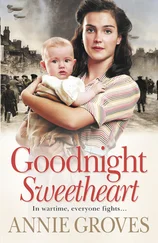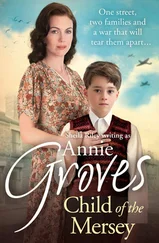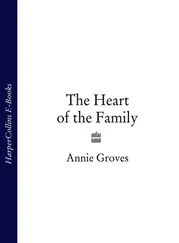Down the next street they passed a group of men still searching quietly in the filthy soot and dust-coated rubble of what had once been a row of buildings but that was now a line of jagged roofless outlines against the darkening sky.
Olive started to walk more quickly, hissing to the girls to ‘keep up’, not wanting to raise her voice in case the sound disturbed the men listening so carefully at those still mounds of rubble, just in case there might be someone inside them still alive.
‘Ugh. Look, I’ve got soot and grease on my gloves,’ Dulcie complained once they were all standing together in the safety and warmth of number 13’s hallway. Holding up her hands, she displayed for everyone else’s inspection the pretty gloves that had been a Christmas present from Olive, who had knitted a pair for each of the girls from wool she had unravelled from old jumpers and the like, handed over to the WVS for reuse. The money she’d paid for the items and the work she had to do, not just in the knitting but also in unpicking and then washing the wool in the first place, was rewarded every time she saw her girls go out with their hands warmly wrapped in their gloves.
‘Give them to me. It will wash out with a bit of Dreft,’ she assured Dulcie, in the general bustle of coats, scarves and hats being removed and hung on the hall coat stand, prior to everyone hurrying into the warmth of the cosy family kitchen at the back of the house.
Olive’s kitchen, with its duck-egg-blue and cream colour scheme, gave her a thrill of pride every time she walked into it. Her late father-in-law had bought the kitchen units for her, having had them copied by someone he knew after Olive had seen and fallen in love with them at a furniture exhibition the year before he had died.
Number 13 had been Olive’s in-laws’ home and she had inherited it from them. It had been her and Tilly’s home all Tilly’s life, and Olive loved it dearly.
Tonight, with thoughts of the destruction they had all just seen, she was more conscious than ever of how precious her home was to her. They had been lucky so far that no bombs had fallen near Article Row. The previous night’s air raid was the closest the falling bombs had come so far. Now, looking round, Olive felt a pang of something approaching guilt because her home was standing when so many weren’t; that those she loved and cared about were safe when so many weren’t, she acknowledged.
It was Sally, with her practical nurse’s manner, who was putting the kettle on and lighting the gas, whilst Tilly got out the mugs, handing them to Drew, the two of them exchanging tender smiles as their fingers touched.
‘Come on, you two lovebirds,’ Dulcie, whose sharp eyes never missed a thing, teased them. ‘I’m gasping for a brew after being out in all that dust and smoke. I dare say there’s all sorts in them cinders we were breathing in,’ she added darkly.
‘What do you mean?’ Agnes squeaked. When Dulcie gave her a meaningful look she demanded, turning slightly green, ‘You mean bodies and things?’
‘Well, what do you think happens when people get burned to death? There’s bound to be summat left,’ Dulcie insisted.
‘That’s enough of that kind of talk, thank you, Dulcie,’ Olive warned her lodger, then sent Agnes to get the milk from the larder.
Hurrying back into the warmth, Agnes reflected on how lucky she was. Abandoned as a baby outside a local orphanage, she’d been terrified at seventeen when the matron had told her that she’d found her a job on the underground and a room to rent. She’d dreaded having to leave the only home she’d ever known. But now number 13 was her home, and the other girls her best friends, especially Tilly, whose bedroom she shared. And it wasn’t just the other girls who’d changed her life. She’d met Ted, a young underground train driver, at work, and she loved him with all her heart, even if the two of them couldn’t even think of getting married for years. Ted had a widowed mother and two young sisters to support, so they wouldn’t be able to marry until Ted’s sisters were grown up and settled. Ted was, after all, the sole breadwinner in their small household. Agnes understood and respected that. In fact, she admired her Ted more than ever for wanting to do his duty by his family.
But …
But Ted’s mother did not want her to marry Ted. Agnes was sure of it, even though Ted told her that she was being silly.
Agnes gave a small sad sigh. She had longed all her life to be part of a proper family, but Olive, her landlady, showed her far more warmth and kindness than Ted’s mother. The reason for that was that Agnes had been left on the orphanage doorstep with nothing to indicate anything about her parentage, or who or what her family had been. Ted had explained to her that his mother’s own mother had grown up in poverty with the threat of the poorhouse always hanging over her. Because of that, respectability – the kind of respectability that came not just from being able to pay one’s way in life but, just as important, from knowing who one’s antecedents were – was very important to Ted’s mother. She had strong views about bad blood being passed on to her grandchildren. These were views that Ted did not share. Agnes knew that Ted loved her and sometimes she thought that she was being very greedy indeed to want Ted’s mother to love her as well, but Mrs Jackson’s animosity was a hurt she could not put aside.
The tea brewed, they all settled down around the table, the lack of chairs for everyone allowing Tilly to perch on Drew’s knee, determinedly ignoring the look Olive was giving her as she did so.
‘Do you think it’s true what that fireman told us, about the Germans deliberately planning things so that the firebombs would land at the lowest point of the tide, so that the fire engines couldn’t get a proper water supply?’ Tilly asked Drew.
‘I guess so. Wouldn’t you say so, Ted?’
‘It certainly looks like it,’ Ted agreed. ‘And it worked as well.’
‘It definitely has,’ Sally joined in grimly. She’d been on duty when they’d started bringing in the first of the casualties. Two firemen had died in one of the ambulances before they’d even got them to Barts. She’d thought briefly of George, her young man, whilst they’d worked as swiftly as they could in the hospital’s operating theatre, moved down in the basement for the duration – not because she knew he’d be concerned about her but because they knew all about treating badly burned patients at East Grinstead. They dealt with the young airmen who had survived their burning planes, as well as other disfigured patients.
It wasn’t just burns the patients being brought into Barts had suffered, though. Some had lost limbs, some had been badly crushed, and there’d been dreadful tales of the fate met by some of the dead: flesh and fabric melted together, and blown off bodies by the force of the bombs, terrible, terrible things that you just did not want to think about but that you couldn’t help but think about later, trying to sleep.
Sally had come to London originally because she had needed desperately to escape from her home in Liverpool. As a young nurse in training in Liverpool she had befriended another young nurse, Morag. Following the deaths of their parents in a boating accident Morag and her older brother, Callum, had moved to Liverpool when Callum had secured a job as a teacher in the city. Right from the very start Sally had been attracted to tall, dark-haired and good-looking Callum. However, it had been Callum’s good nature, his concern for his sister, his care for his pupils and his gratitude to her own parents for the friendship they had extended towards the siblings that had turned Sally’s semi-infatuation into something much stronger.
Читать дальше












